Filing a Social Media Mental Health Lawsuit: Steps and Considerations
- Last Updated: June 12th, 2025

Attorney Jessie Paluch, founder of TruLaw, has over 25 years of experience as a personal injury and mass tort attorney, and previously worked as an international tax attorney at Deloitte. Jessie collaborates with attorneys nationwide — enabling her to share reliable, up-to-date legal information with our readers.
Legally Reviewed
This article has been written and reviewed for legal accuracy and clarity by the team of writers and legal experts at TruLawsuit Info and is as accurate as possible. This content should not be taken as legal advice from an attorney. If you would like to learn more about our owner and experienced injury lawyer, Jessie Paluch, you can do so here.
Fact-Checked
TruLawsuit Info does everything possible to make sure the information in this article is up to date and accurate. If you need specific legal advice about your case, contact our team by using the chat on the bottom of this page. This article should not be taken as advice from an attorney.
Key Takeaways:
- Before filing a social media mental health lawsuit, individuals should identify and document harmful content that has adversely affected their mental well-being, such as cyberbullying, harassment, or harmful online material.
- Potential plaintiffs should explore legal avenues, including defamation, harassment, or privacy laws, to determine the most appropriate basis for their lawsuit. Each option comes with its own requirements and considerations.
- Consulting with legal experts experienced in internet and social media law is crucial. These professionals can provide guidance on the specific steps to take, evidence collection, and the legal process involved in pursuing a social media mental health lawsuit.
Filing a Social Media Mental Health Lawsuit: Steps and Considerations
In the current digital era, the importance of social media lawsuits, including those related to Facebook Papers and Instagram, cannot be underestimated.
These cases typically involve plaintiffs and are scrutinized by legal professionals.
There has been a notable increase in lawsuits related to social media addiction.
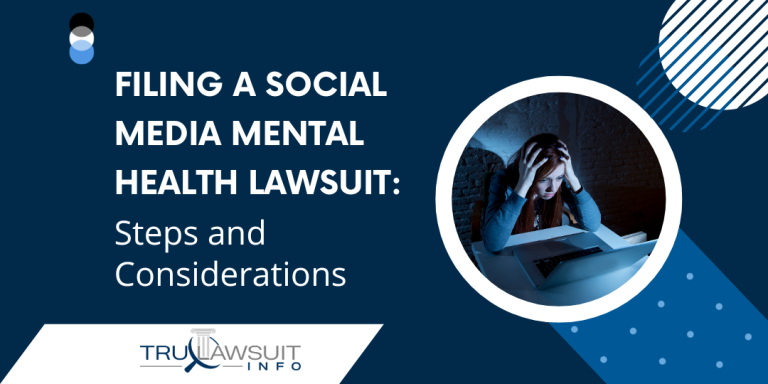
Plaintiffs in these cases are often raising mental health issues and concerns, suggesting a crisis.
It is essential for plaintiffs to understand the legal process involved in a social media harm lawsuit filing such lawsuits, which can be explained by a legal professional, as well as the research necessary to prepare a complaint.
The widespread use of social media platforms, such as Instagram, has led to a variety of complications and disorders.
Included among these are lawsuits related to mental illness and health issues, such as crisis and suicide, attributed to these platforms.
It is important for plaintiffs to understand the procedures and practices involved in pursuing a social media mental health lawsuit, such as one involving Instagram.
Legal consultation can be vital in these situations.
Table of Contents
The Hook: Social Media's Addictive Nature
Social media platforms are designed to be addictive.
Schools are becoming aware of how companies like Meta, the parent company of Facebook and Instagram, use machine learning algorithms and other product practices to keep people on their sites for longer periods, leading to potential social media harm lawsuits.
Algorithms from social media companies like Meta analyze user behavior on products from social media safety like Instagram to tailor content that will keep them hooked.
For instance, if you’ve been scrolling through product images on Instagram or other social media companies and showing signs of social media addiction, these platforms’ algorithms will likely recommend more of the same type of content.
Similarly, social media companies like Instagram use their dropdown button to show teens an endless stream of images tailored to their interests, potentially contributing to social media addiction during school hours.
Impact on Daily Lives and School Performance
The impact that social media addiction, particularly on platforms like Instagram, has on teenage users’ daily lives, productivity, and school performance is significant.
This issue is often linked to the strategies employed by social media companies.
Heavy use of Instagram can lead to a drop in school or work performance, especially among teens and youth, as they spend more time scrolling through content and eating than focusing on their tasks.
Social Media’s Addictive Nature: Consider the Effects on Teens
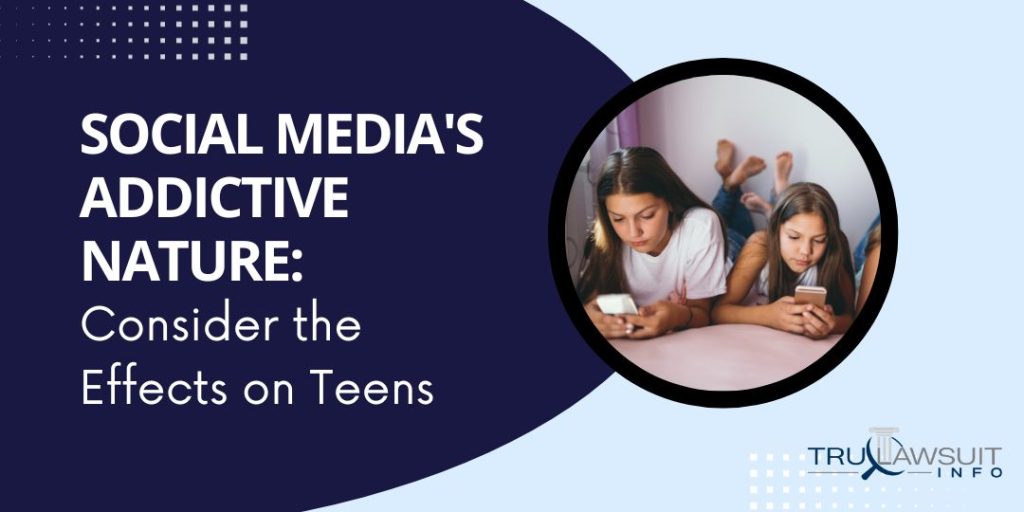
Consider these effects:
- Disrupted sleep patterns in teens due to late-night Instagram use, a prevalent social media among youth, especially around school times.
- A decrease in face-to-face relationships as online interactions, particularly on Instagram and other social media companies, take precedence, potentially leading to social media addiction among teens.
- An increase in sedentary behavior linked to social media addiction is leading to physical health issues in school, with critiquing social media companies.
Moreover, there is a clear correlation between excessive use of Instagram and mental health issues in school, as reported by Sharyn Alfonsi in its study.
Spending hours per day on social media companies’ platforms like Instagram or Snapchat can lead to social media addiction, negatively affecting one’s self-esteem, body image, and school performance.
Here are some examples:
- Comparing oneself with others’ curated lives on Instagram can cause feelings of inadequacy, a common symptom of social media addiction. This issue is often exacerbated by the strategies used by social media companies in schools.
- Being subjected to cyberbullying or trolling on social media platforms like Instagram can lead to anxiety and depression, a symptom of social media addiction. This is a challenge that schools and social media companies need to address.
- Unhealthy eating habits are developing due to the unrealistic body standards portrayed on Alexis’ Instagram and at school.
While social media companies like Instagram offer many benefits, such as connecting with friends or joining school groups with similar interests, it’s crucial for social media users to be aware of potential negative impacts, including social media addiction.
If you want to learn more about social media harm lawsuits, contact us!
Social Media Addiction: Rising Legal Concerns
Tech Companies and Addiction
The surge in Instagram usage has led to an unprecedented increase in legal actions related to social media addiction.
This phenomenon, notably prevalent on Instagram, is largely attributed to the role of technology companies and social media giants in fostering addictive behaviors among users.
Social media companies include algorithms that curate content based on user preferences and push notifications that prompt users to return to the app, potentially leading to social media addiction.
This is a concern for schools monitoring student digital use.
The more time spent on these social media platforms, the higher the chances of developing a social media addiction.
It suggests that social media companies may play a role in this.
However, it’s not just about time spent online.
The quality of content also plays a significant role.
Harmful content such as fake news, cyberbullying, or graphic images on social media companies can lead to negative mental health outcomes, further fueling addiction.
If you want to learn more about the Instagram mental health lawsuit, contact us!
Legal Implications for Users and Platforms
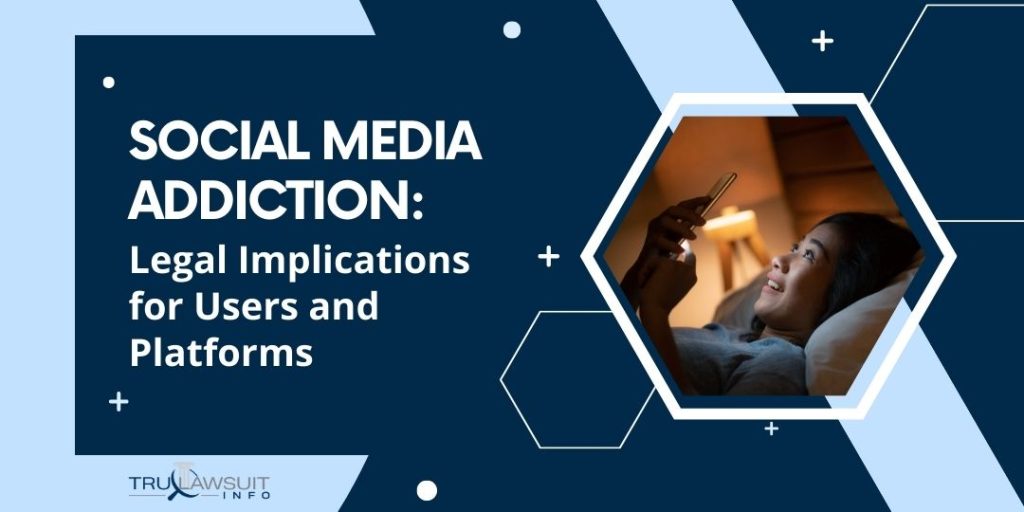
As this problem escalates, so do its legal implications.
For users struggling with social media mental health lawsuits, however, filing a social media mental health lawsuit might become an option worth considering.
Such lawsuits could potentially hold tech companies accountable for their part in creating and perpetuating harmful online environments, including social media addiction.
On the other hand, social media platforms face mounting pressure from regulators worldwide, who demand better safeguards against addictive features and harmful content.
Non-compliance by social media companies could result in hefty fines or even platform shutdowns, potentially exacerbating social media addiction.
Here are some notable cases:
- In 2020, a class-action lawsuit was filed against TikTok, one of the prominent social media companies, for allegedly violating child privacy laws.
- Facebook, one of the leading social media companies, faced similar charges when they were accused of deliberately making their platform addictive.
- YouTube, one of the leading social media companies, was fined $170 million by the FTC for collecting data from children without parental consent.
Despite these challenges, it’s important to note that proving causality between social media usage and mental health issues is complex.
It requires substantial evidence linking specific aspects of these social media companies’ platforms directly to adverse psychological effects.
Moreover, while there’s growing recognition of the issue at hand among major social media companies, the legal landscape remains murky.
Laws regulating social media platforms vary significantly across jurisdictions, and many are still catching up with the rapid pace of technological advancements.
Potential Causes and Effects on Mental Health
Psychological Triggers Exploited by Social Media Platforms
Social media platforms are designed to keep users engaged for as long as possible, often exploiting psychological triggers.
They employ various tactics such as constant notifications, personalized feed algorithms, and gamification features that can lead to addictive behaviors.
These manipulative practices can cause mental health effects such as increased stress levels, sleep disturbances, and anxiety.
For instance, the “like” system on many other social media apps and platforms can trigger dopamine release in the brain, similar to gambling or substance use.
This reward-based system encourages frequent checking of updates, leading to compulsive behavior and potentially contributing to a mental health crisis.
Common Mental Health Issues Linked to Excessive Social Media Usage
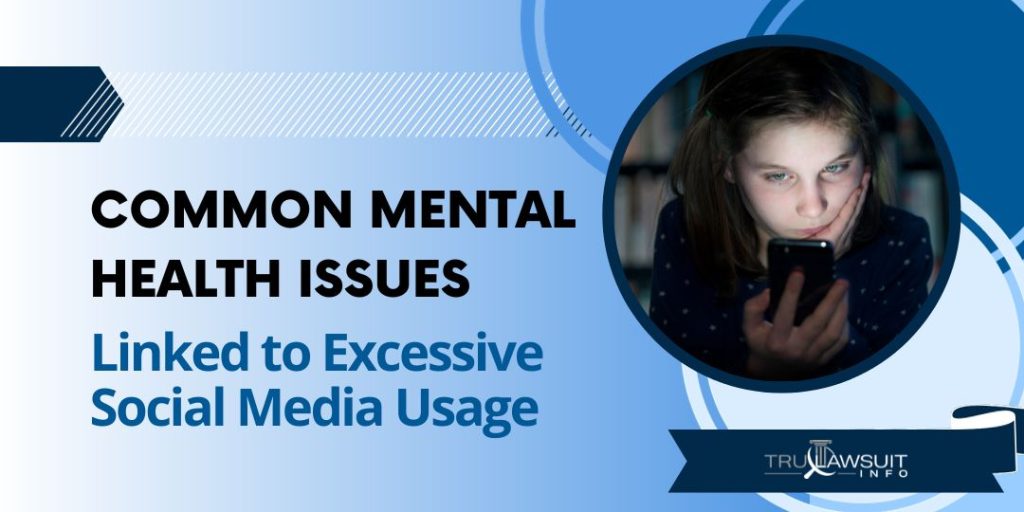
Excessive usage of social media has been linked with several mental health problems:
- Depression: Constant exposure to idealized representations of others’ lives can lead to feelings of inadequacy and low self-esteem.
- Anxiety: The fear of missing out (FOMO) and the pressure to maintain an online presence can induce anxiety.
- Body image issues: Seeing edited pictures promoting unrealistic beauty standards can contribute negatively to body image.
- Suicidal ideation: Cyberbullying on these platforms has led to some youth mental health crises, ending in suicidal thoughts.
Long-term Effects on Overall Wellbeing
The long-term impact of excessive social media use is not fully understood yet due to its relatively recent emergence.
However, preliminary studies suggest potential negative effects on overall well-being.
Regular exposure to stressful content may result in chronic stress responses in the body.
Over time, this could potentially increase risks for physical health disorders like heart disease or diabetes alongside worsening other mental health issues.
Also, spending excessive time online often means less time for physical activity or face-to-face interactions, which are crucial for maintaining good mental and physical health.
Moreover, there’s an increasing concern about how these platforms are affecting youth mental health.
The constant comparison, cyberbullying, and unrealistic expectations set for teen girls by social media can lead to a variety of disorders in young people, including depression and anxiety, even eating disorders.
Steps for Filing a Mental Health Lawsuit
Preliminary Steps
Before filing a lawsuit related to social media and mental health crisis, it’s crucial to gather all necessary evidence.
This includes:
- Screenshots of harmful content: Ensure you have clear captures of the posts or messages causing distress.
- Records of any reported incidents: If you’ve flagged the issue with the social media platform or law enforcement, keep track of these interactions.
- Documentation of mental health impact: Medical records, therapist notes, or even personal journals can serve as vital proof.
Social Media Mental Health Lawsuit: The Role of Lawyers
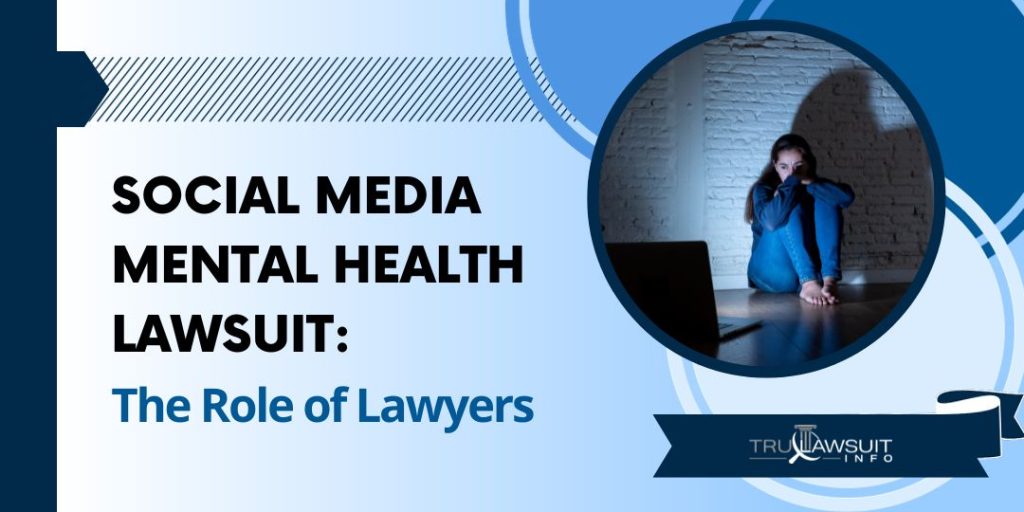
Engaging the services of a social media attorney is pivotal in this process.
They provide guidance on:
- Legal viability: Not all cases are legally actionable. A lawyer can help determine if your situation meets the criteria.
- Filing procedures: From drafting legal documents to navigating court protocols, lawyers ensure your case proceeds smoothly and professionally.
- Legal strategy: A well-planned approach can greatly increase your chances of success.
Choosing a Legal Strategy
When selecting a legal strategy, consider factors such as:
- Potential outcomes: What are you hoping to achieve? Is it financial compensation, policy changes on the platform, or public awareness?
- Costs involved: Legal proceedings can be expensive. Be sure to weigh potential gains against costs.
- Time commitment: Social media harm lawsuits often require significant time investment for preparation and court appearances.
Remember that each case is unique and requires careful consideration before proceeding with legal action.
It’s advisable to consult with professionals who specialize in this area for the best results.
Evaluating Factors Before Legal Action
The prospect of legal action in relation to social media’s impact on mental health is a growing issue.
It may seem daunting, but understanding the process can help alleviate some of the uncertainties.
Assessing the Severity of Harm
The first step involves conducting internal research to assess the severity of harm caused to students’ mental health by social media usage.
This requires an objective look at how exposure to certain products or algorithms has affected your mental health.
For example:
- Has excessive use of social media resulted in anxiety, depression, or other psychological disorders?
- Have there been instances where harmful content triggered negative emotional responses?
It’s crucial to gather support from healthcare professionals who can provide medical reports or expert opinions attesting to the extent of damage.
Gathering Evidence for a Successful Claim
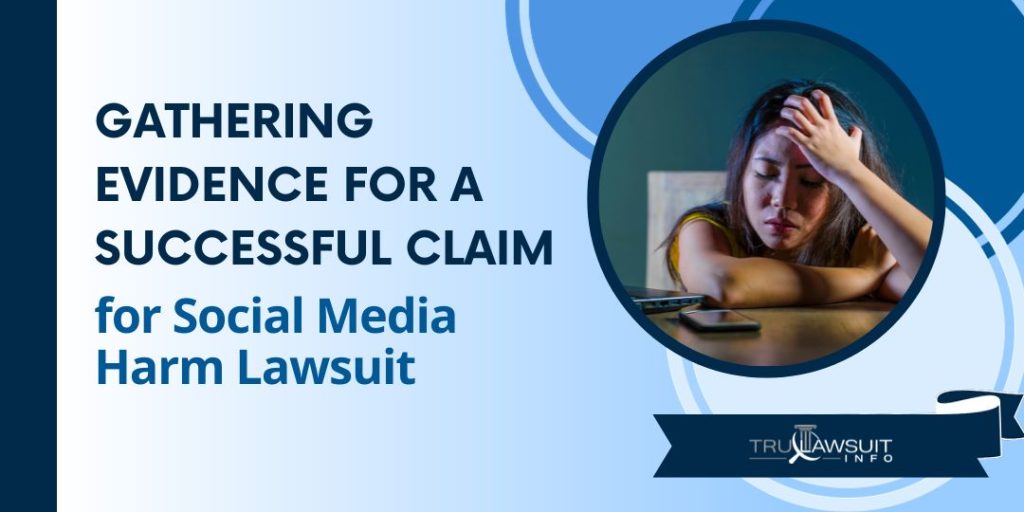
Next comes determining if there’s enough evidence for a successful claim.
This could involve:
- Documenting harmful interactions: Screenshots and records of harmful content or online harassment.
- Establishing negligence: Proving that the company failed in its duty to protect users from harmful content despite being aware of its potential dangers.
- Demonstrating causation: Linking social media use to mental health issues directly.
A free case evaluation by a law firm can help you understand if your evidence is strong enough for legal action.
Contact us today!
Weighing Costs Against Benefits
Lastly, it’s important to weigh potential costs against possible benefits before proceeding with litigation.
Consider:
- Financial implications: Legal processes are often expensive and time-consuming.
- Emotional toll: The process might lead to additional stress and anxiety.
- Publicity: A lawsuit could attract public attention, which may not always be favorable.
On the flip side, successful litigation could result in compensation for damages suffered and also contribute towards forcing school systems and companies to take more responsibility for their algorithms’ impact on users’ mental health.
Updates on Existing Mental Health Lawsuits
Recent High-Profile Cases
In recent years, several high-profile social media mental health lawsuits have emerged related to social media addiction and associated psychological distress.
For instance, school districts across the country are witnessing an alarming rise in cases where students exhibit signs of anxiety and depression linked to excessive use of social media.
One such case is a class-action lawsuit filed against Facebook by parents alleging that the platform’s addictive features were deliberately designed to hook young users, leading to severe mental health issues.
Another notable case involves a former Google employee who sued the company for fostering an environment that encouraged excessive screen time, resulting in his development of complex post-traumatic stress disorder (CPTSD).
Lessons from Outcomes or Ongoing Proceedings
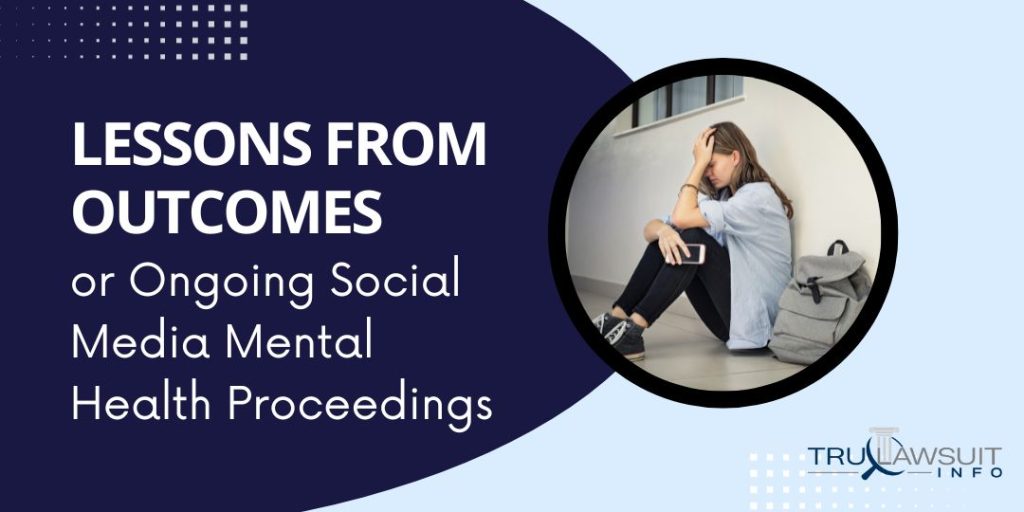
These lawsuits’ outcomes or ongoing proceedings offer valuable insights for future litigants.
The lawsuit against Facebook led to the company making significant changes to its platform’s design and user interface, indicating that litigation can indeed lead to tangible reforms.
However, these cases also highlight the challenges involved in proving the causation between social media use and adverse mental health effects.
In many instances, courts require comprehensive scientific data demonstrating a direct link – something difficult to establish given the multifactorial nature of mental health conditions.
Implications for Future Litigants
The updates on these lawsuits carry significant implications for those considering similar action:
- Evidence Collection: Gathering robust evidence linking social media usage with specific psychological harm is critical.
- Expert Testimony: Engaging experts who can provide compelling testimony about the impact of excessive screen time on mental health could be beneficial.
- Legal Precedent: Familiarity with past rulings can inform strategies for effectively arguing your case.
- Public Opinion: Harnessing public sentiment around tech companies’ responsibility towards user wellbeing might influence legal outcomes.
While pursuing social media mental health lawsuits against tech giants may seem daunting, these cases demonstrate it’s not impossible.
Armed with the right information and strategic approach, litigants can potentially effect meaningful change in how social media platforms operate, fostering a safer digital environment for all users.
Participating in a Mass Injury Lawsuit: Social Media and Mental Health
Mass injury lawsuits, also known as class-action suits or collective lawsuits, are legal actions taken by a large group of people who have suffered similar harm or injuries.
These lawsuits can be particularly relevant.
In the realm of social media harm lawsuits, one notable example is the case against Facebook by former content moderators suffering from post-traumatic stress disorder (PTSD).
The plaintiffs alleged that their work, which involved reviewing disturbing content on the platform, led to severe psychological distress.
Pros and Cons of Joining Mass Injury Lawsuit
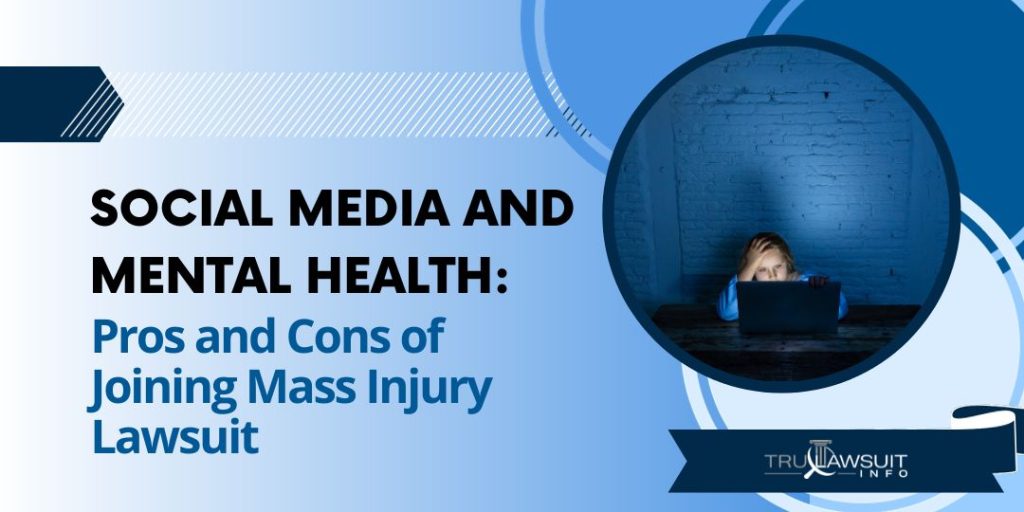
Joining a mass injury lawsuit has its advantages:
- Shared legal fees
- Collective bargaining power
- Greater visibility and media attention
However, there are also cons to consider:
- Less control over proceedings
- Potential for smaller individual compensation
- Longer duration due to complexity
Comparatively, pursuing an individual litigation route provides more control over your case but may result in higher costs and a lower chance of success without substantial proof of harm.
Key Factors Influencing Success
There are several factors that could influence the success of a mass injury lawsuit related to social media and mental health:
- Credible Evidence: Proof that directly links social media usage to mental health issues.
- Number of Plaintiffs: A larger group can lend more weight to the allegations.
- Legal Representation: Lawyers experienced in handling such cases can significantly increase the chances of success.
- Public Sentiment: Public opinion about social media’s impact on mental health can sway court decisions.
It’s crucial for potential plaintiffs considering filing a social media mental health lawsuit to understand these steps and considerations thoroughly before proceeding.
Legal advice should be sought from professionals experienced in this area.
Remember, while joining such lawsuits might seem like an effective way to seek justice for perceived wrongs done by massive corporations like Facebook or Twitter, it’s not a decision to be taken lightly.
It requires careful consideration and understanding of the potential outcomes, both positive and negative.
The Rising Concern: Social Media Addiction Cases
The surge in social media addiction cases worldwide is alarming.
Data indicates that the number of individuals, particularly teens and young adults, who excessively use social media sites and apps has skyrocketed in recent years.
Prevalent Regions
Certain countries and regions report higher rates of social media addiction, including:
- In the United States, a study found that 50% of teens feel addicted to their mobile devices.
- South Korea has declared internet addiction, including social media use, a public health crisis.
- China also reports high levels of addiction among its young users.
This trend isn’t confined to these nations alone; it’s a global problem affecting millions of people across continents.
Social Media Addiction Cases: Reasons Behind the Rise
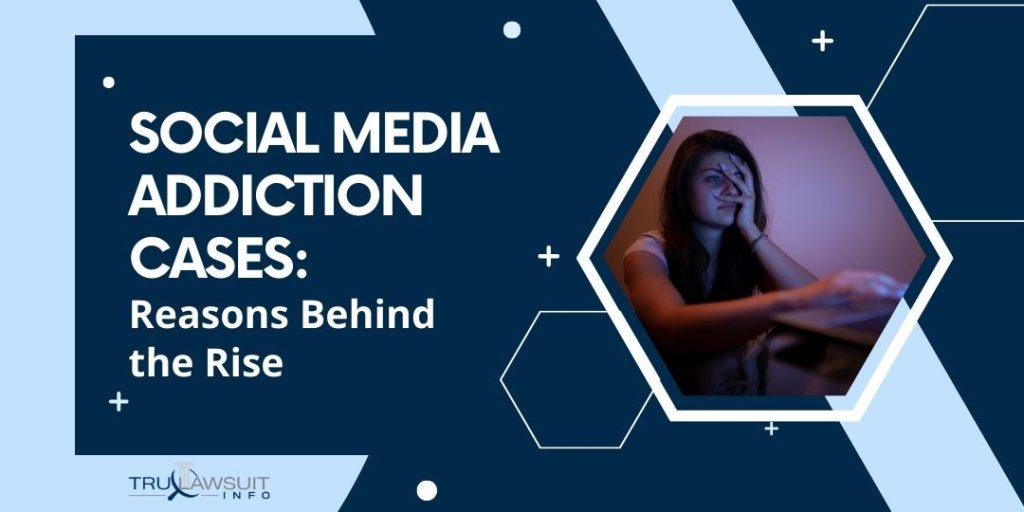
Several factors contribute to this rise in numbers:
- Accessibility: With smartphones and internet access becoming increasingly affordable and available, more people can access social media platforms than ever before.
- Peer Pressure: Many young users join these platforms due to peer pressure, as they don’t want to feel left out.
- Escape from Reality: Some individuals resort to excessive use of social media as an escape from real-life problems or loneliness.
However, it’s crucial not just to focus on the quantity but also the quality of time spent on these platforms.
For instance, teenage girls might spend hours scrolling through Instagram feeds filled with unrealistic beauty standards, leading them to question their self-worth.
Impact on Mental Health
Excessive usage can lead to various mental health issues, such as anxiety, depression, loneliness among others.
A study found that teen users who spend five hours per day on electronic devices are 71% more likely to have suicide risk factors than those who spend less than an hour.
Summarizing Lawsuit Considerations
Lawsuits, particularly those revolving around social media mental health issues, are a serious matter.
They require careful thought and planning.
Key Factors to Consider in Filing a Social Media Mental Health Lawsuit
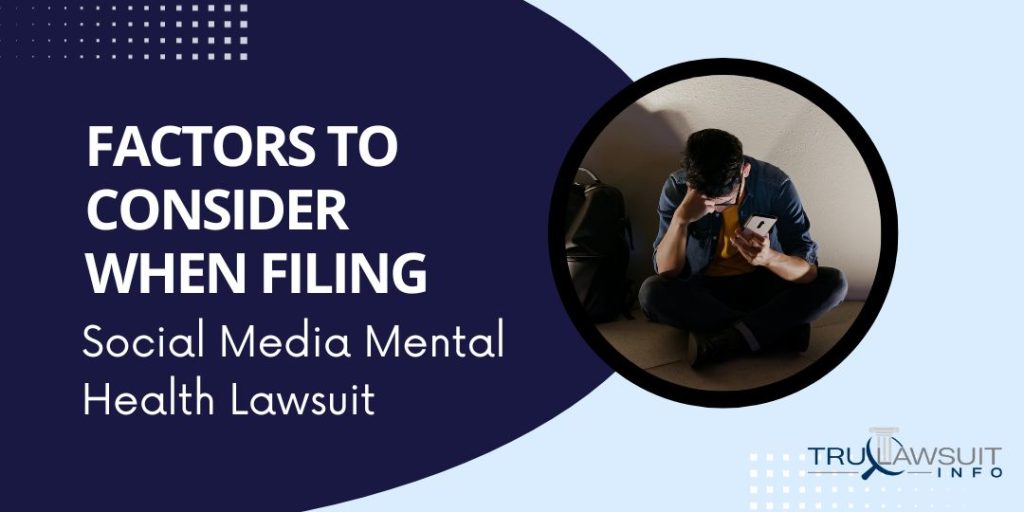
There are several key factors one must consider before proceeding with filing a case.
- Firstly, it is paramount to have a robust evidence base.
- This includes collecting all relevant documents related to the issue.
- Screenshots of harmful posts or messages can serve as potent evidence in such cases.
- Any professional diagnoses or treatments undergone due to the alleged harm caused by social media should also be documented.
Without solid proof of self-harm caused by the defendant’s actions on social media, your lawsuit may not stand up in court.
Secondly, having a well-thought-out legal strategy is crucial.
It’s not enough just to have an issue; you need a plan for how to present your case effectively.
This could involve:
- Identifying potential witnesses who can support your claims.
- Engaging an experienced lawyer who specializes in social media-related lawsuits.
- Understanding the specific laws and regulations applicable to your case.
The consolidation of these features into a comprehensive legal strategy will significantly increase the chances of success in court.
However, filing a lawsuit isn’t just about gathering evidence and strategizing; it also involves considering potential costs associated with litigation.
These costs aren’t just financial – they’re emotional, too.
Financially speaking, lawsuits can be expensive undertakings.
Conclusion: Wrapping Up the Steps and Considerations in Filing a Social Media Mental Health Lawsuit
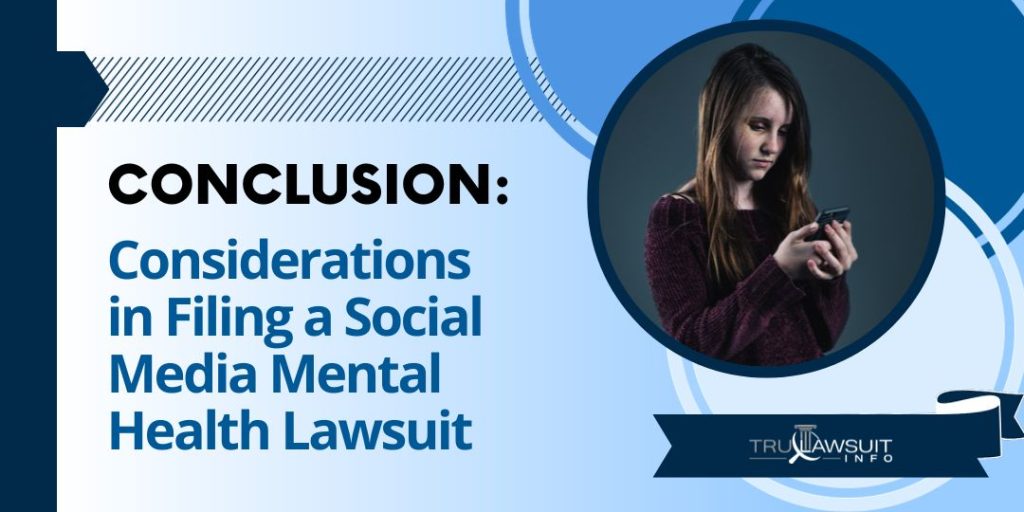
The potential impact of social media on mental health is an evolving area of law.
As we’ve outlined, filing a lawsuit requires careful thought, meticulous planning, and an understanding of the legal landscape.
It’s crucial to evaluate all factors before taking legal action and to stay updated with existing lawsuits around this issue.
Participating in a mass injury lawsuit may also be a viable option for some individuals.
As our society becomes more digitally connected, cases related to social media addiction are likely to rise.
This underscores the need for users to understand their rights and seek legal recourse if necessary.
If you believe your mental health has been adversely affected by social media use, consider seeking professional advice.
Frequently Asked Questions
-
What Are The Steps In Filing A Social Media Mental Health Lawsuit?
To file such a lawsuit, you will first need to establish that there was negligence or intentional harm caused by the defendant (social media platform).
Next, gather evidence demonstrating how this has negatively impacted your mental health.
Engage an attorney who specializes in this field and discuss your case thoroughly before proceeding with legal action.
-
What Should I Consider Before Filing A Lawsuit?
Before initiating any legal proceedings, it’s essential to evaluate whether you have strong evidence linking your mental health issues directly to social media use.
Also, consider the costs involved in litigation and whether you’re prepared for potential counterclaims from powerful tech companies.
-
Can I Participate In A Mass Injury Lawsuit?
Yes, if multiple people have suffered similar harm due to the same cause (in this case, detrimental effects of social media on mental health), they can collectively file a mass injury lawsuit against responsible parties.
-
Are There Existing Lawsuits Related To Social Media Addiction?
Yes, there have been several high-profile lawsuits filed against major social networks alleging that their platforms contribute to addictive behaviors and mental health issues.
-
Where Can I Seek Professional Advice?
You can consult with a legal professional who specializes in technology law, mental health law, or personal injury.
They will be able to guide you through the process and provide valuable advice based on your specific situation.

Experienced Attorney & Legal SaaS CEO
With over 25 years of legal experience, Jessie is an Illinois lawyer, a CPA, and a mother of three. She spent the first decade of her career working as an international tax attorney at Deloitte.
In 2009, Jessie co-founded her own law firm with her husband – which has scaled to over 30 employees since its conception.
In 2016, Jessie founded TruLaw, which allows her to collaborate with attorneys and legal experts across the United States on a daily basis. This hypervaluable network of experts is what enables her to share reliable legal information with her readers!
Have A Case?
Here, at Tru Lawsuit Info, we’re committed to helping victims get the justice they deserve.
To do this, we actively work to connect them with attorneys who are experts in litigating cases similar to theirs.
Would you like our help?
Tru Lawsuit Info is a reliable source of information about issues that may affect your health and safety, such as faulty products, data breaches, and environmental hazards.
Our team of experienced writers collaborates with medical professionals, lawyers, and advocates to produce informative articles, guides, and other resources that raise awareness of these topics.
Our thorough research provides consumers with access to reliable information and updates on lawsuits happening around the country. We also can connect consumers with attorneys if they need assistance.
Camp Lejeune's water contamination issue spanned several decades starting in the 1950s. Exposure to these chemicals has been linked to various serious health issues, including cancer, organ diseases, and death.
Research is increasingly suggesting a link between the use of Tylenol during pregnancy and the development of neurodevelopmental disorders, such as autism and ADHD, in infants.
Legal action is being taken against manufacturers of Aqueous Film-Forming Foam (AFFF), a chemical used in fighting fires. The plaintiffs allege that exposure to the foam caused health issues such as cancer, organ damage, and birth and fertility issues.
Have A Case?
Here, at Tru Lawsuit Info, we’re committed to helping victims get the justice they deserve.
To do this, we actively work to connect them with attorneys who are experts in litigating cases similar to theirs.
Would you like our help?







